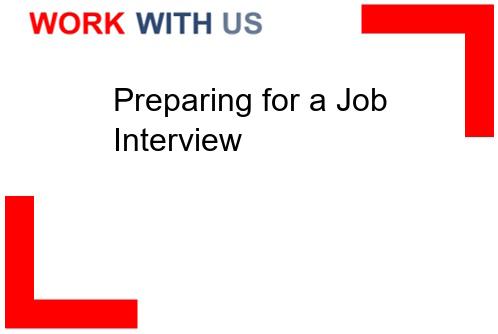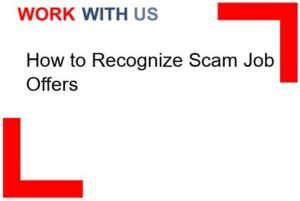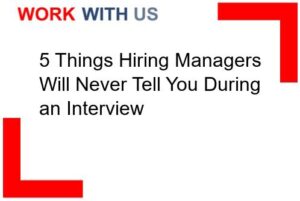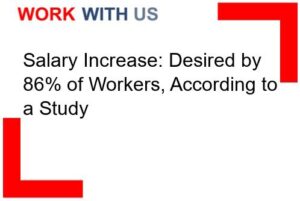Preparing for a job interview can be a nerve-wracking experience for many individuals. It is a crucial step in the job application process and can ultimately determine whether or not a candidate lands their dream job. In order to increase their chances of success, it is important for job seekers to adequately prepare for the interview.
One of the first steps in preparing for a job interview is to research the company and the position for which one is applying. This includes familiarizing oneself with the company’s mission, values, products or services, and recent news or developments. Understanding the company’s culture and goals can help a candidate tailor their responses during the interview to align with what the company is looking for in an ideal candidate.
Additionally, it is important for job seekers to review the job description and requirements thoroughly. This will help them understand what skills and experiences the employer is looking for in a candidate. By identifying their own strengths and experiences that match the job requirements, candidates can effectively communicate why they are the best fit for the position.
Another crucial aspect of preparing for a job interview is practicing common interview questions. This can help candidates articulate their responses clearly and confidently during the actual interview. Some common interview questions include “Tell me about yourself,” “What are your strengths and weaknesses,” and “Why do you want to work for this company?” By practicing their responses to these questions, candidates can ensure that they are well-prepared to answer them during the interview.
In addition to practicing common interview questions, candidates should also prepare for behavioral interview questions. These types of questions require candidates to provide specific examples of how they have demonstrated certain skills or qualities in past experiences. By reflecting on their past experiences and identifying relevant examples, candidates can effectively showcase their abilities and qualifications to the interviewer.
Furthermore, it is important for job seekers to dress appropriately for the interview. First impressions are crucial, and dressing professionally can help candidates make a positive impression on the interviewer. It is recommended to wear business attire, such as a suit or dress, and to avoid wearing distracting accessories or clothing.
Lastly, candidates should prepare questions to ask the interviewer. This demonstrates their interest in the position and the company, and can help them gain a better understanding of the role and the company culture. Some questions candidates may consider asking include “What are the day-to-day responsibilities of this position?” and “What opportunities are there for growth and advancement within the company?”
In conclusion, preparing for a job interview is a critical step in the job application process. By researching the company, practicing common and behavioral interview questions, dressing appropriately, and preparing questions to ask the interviewer, candidates can increase their chances of success and make a positive impression during the interview. With adequate preparation and confidence, job seekers can effectively showcase their skills and qualifications and land their dream job.
Mastering the art of answering behavioral interview questions
Behavioral interview questions are a common part of the job interview process. These types of questions are designed to assess how a candidate has handled specific situations in the past, in order to predict how they may perform in similar situations in the future. can greatly increase a candidate’s chances of landing the job.
One key aspect of answering behavioral interview questions effectively is to use the STAR method. This method involves breaking down your response into four parts: Situation, Task, Action, and Result. By structuring your answers in this way, you can provide a clear and concise explanation of how you have handled certain situations in the past.
When answering behavioral interview questions, it is important to be specific and provide concrete examples. Avoid giving vague or general answers, as this can make it difficult for the interviewer to assess your qualifications. Instead, focus on providing detailed examples of how you have successfully handled challenges or achieved goals in previous roles.
Another important aspect of mastering behavioral interview questions is to practice beforehand. Take the time to review common behavioral interview questions and think about how you would respond to them. Consider drawing on a variety of experiences from your past work, volunteer, or academic experiences to provide a well-rounded set of examples.
During the interview, it is important to listen carefully to each question and take a moment to gather your thoughts before responding. This will help you to provide a thoughtful and well-organized answer. Remember to focus on the specific situation, the actions you took, and the results you achieved when crafting your response.
It is also important to be honest and authentic when answering behavioral interview questions. Avoid embellishing or exaggerating your experiences, as this can come across as insincere. Instead, focus on highlighting your genuine strengths and accomplishments in a way that is both compelling and truthful.
In addition to preparing for specific questions, it can also be helpful to practice your responses with a friend or mentor. This can help you to refine your answers and receive feedback on areas where you may need to improve. Remember to pay attention to your body language and tone of voice during practice sessions, as these can also impact how your responses are perceived.
When answering behavioral interview questions, it is important to demonstrate your ability to learn from past experiences and apply those lessons to future situations. Highlight your problem-solving skills, adaptability, and ability to work well under pressure. By showcasing these qualities, you can demonstrate to the interviewer that you are well-equipped to handle the challenges of the role.
Overall, requires preparation, practice, and authenticity. By using the STAR method, providing specific examples, and focusing on your problem-solving skills, you can effectively showcase your qualifications and increase your chances of success in the interview process. Remember to stay calm, confident, and focused during the interview, and trust in your ability to effectively communicate your experiences and accomplishments. With the right approach, you can ace your next behavioral interview and land the job of your dreams.
Building a strong personal brand for job interviews
Building a strong personal brand is essential when preparing for job interviews. A personal brand is how an individual presents themselves to the world, showcasing their unique skills, experiences, and values. When done effectively, a strong personal brand can set a candidate apart from the competition and leave a lasting impression on potential employers.
Creating a Personal Brand
To build a strong personal brand for job interviews, individuals should start by identifying their strengths, values, and unique selling points. This involves reflecting on past experiences, accomplishments, and skills that make them stand out. It is important to be authentic and genuine in showcasing these qualities, as employers can easily spot insincerity. Additionally, candidates should consider how they want to be perceived by others and what kind of impression they want to leave on potential employers.
Crafting a Personal Brand Statement
One of the key components of a strong personal brand is a well-crafted personal brand statement. This statement should be a concise summary of who the individual is, what they do, and what sets them apart from others. It should be clear, compelling, and memorable, capturing the essence of the candidate’s personal brand in just a few sentences. This statement can be used as an elevator pitch during job interviews to quickly and effectively communicate the candidate’s value proposition to potential employers.
Building an Online Presence
In today’s digital age, having a strong online presence is crucial for building a personal brand. Candidates should ensure that their social media profiles are professional and reflect their personal brand accurately. They should also consider creating a personal website or blog to showcase their work, accomplishments, and expertise. Engaging with industry influencers and participating in online discussions can also help candidates establish themselves as thought leaders in their field.
Networking and Building Relationships
Networking is another important aspect of building a strong personal brand. Candidates should attend industry events, conferences, and networking mixers to connect with professionals in their field. Building relationships with industry insiders can open up new opportunities and help candidates stay top of mind when job openings arise. It is important to be proactive in networking and to follow up with contacts regularly to maintain those relationships.
Showcasing Skills and Expertise
During job interviews, candidates should be prepared to showcase their skills and expertise in a way that aligns with their personal brand. This can involve providing specific examples of past accomplishments, demonstrating problem-solving abilities, and highlighting relevant experiences that make them a strong fit for the position. Candidates should also be prepared to discuss how their personal brand aligns with the company’s values and goals, showing that they are a good cultural fit for the organization.
In conclusion, is a strategic process that involves self-reflection, crafting a compelling personal brand statement, building an online presence, networking, and showcasing skills and expertise. By taking the time to develop a strong personal brand, candidates can differentiate themselves from the competition and make a lasting impression on potential employers. It is important for candidates to be authentic, genuine, and consistent in presenting their personal brandstrong>, as this will help them stand out in a competitive job market.
Strategies for researching and understanding the company before an interview
Preparing for a job interview involves more than just practicing answers to common questions. One crucial aspect of interview preparation is researching and understanding the company you are interviewing with. By taking the time to learn about the company’s history, culture, values, and recent developments, you can demonstrate your interest and enthusiasm for the position. Additionally, having a solid understanding of the company can help you tailor your responses during the interview to align with the organization’s goals and values.
One effective strategy for researching a company before an interview is to start by visiting the company’s website. Most companies have an “About Us” section on their website that provides valuable information about the company’s history, mission, values, and key personnel. By familiarizing yourself with this information, you can gain insight into what the company stands for and what it values in its employees. Additionally, browsing through the company’s recent press releases and news articles can give you a sense of the company’s current projects, achievements, and challenges.
Another valuable resource for researching a company is social media. Many companies have active social media profiles on platforms like LinkedIn, Twitter, and Facebook, where they share updates, news, and insights about their industry. By following the company on social media, you can stay informed about the latest developments and trends in the industry, as well as get a sense of the company’s culture and values. Additionally, social media can provide you with a glimpse into the company’s work environment and employee engagement, which can help you assess whether the company is a good fit for you.
In addition to online resources, networking can also be a valuable tool for researching a company before an interview. Reach out to current or former employees of the company through professional networking sites like LinkedIn or attend industry events where you may have the opportunity to meet employees of the company. By talking to people who have firsthand experience with the company, you can gain valuable insights into the company’s culture, work environment, and values. Additionally, networking can help you establish connections within the company, which may be beneficial during the interview process.
Furthermore, conducting a thorough analysis of the company’s competitors can also provide valuable insights into the company’s position in the market and its strategic priorities. By researching the company’s competitors, you can gain a better understanding of the industry landscape, market trends, and potential challenges the company may be facing. This knowledge can help you demonstrate your industry knowledge during the interview and showcase your ability to think strategically about the company’s competitive position.
Lastly, it is essential to review the job description and requirements carefully before the interview. By understanding the specific skills, qualifications, and experiences the company is looking for in a candidate, you can tailor your responses during the interview to highlight your relevant experience and expertise. Additionally, by aligning your responses with the job requirements, you can demonstrate to the interviewer that you have taken the time to understand the company’s needs and are prepared to meet them.
In conclusion, researching and understanding the company before an interview is a critical step in preparing for a successful interview. By utilizing a combination of online resources, networking, competitor analysis, and careful review of the job description, you can gain valuable insights into the company’s culture, values, and strategic priorities. This knowledge can help you demonstrate your interest and enthusiasm for the position, as well as showcase your industry knowledge and strategic thinking skills. By taking the time to research the company thoroughly, you can position yourself as a well-informed and qualified candidate who is prepared to excel in the role.
Effective techniques for handling stress and nervousness before and during a job interview
Job interviews can be a nerve-wracking experience for many individuals. The pressure to perform well and make a good impression can lead to stress and nervousness. However, there are effective techniques that can help individuals manage their stress and nervousness before and during a job interview.
One effective technique for handling stress and nervousness before a job interview is to prepare thoroughly. This includes researching the company, understanding the job requirements, and practicing common interview questions. By being well-prepared, individuals can feel more confident and less anxious during the interview process.
Another technique is to practice relaxation techniques such as deep breathing, meditation, or visualization. These techniques can help individuals calm their nerves and focus their minds before the interview. Taking deep breaths and focusing on the present moment can help individuals feel more grounded and centered.
It is also important for individuals to get a good night’s sleep before the interview and to eat a healthy meal. Lack of sleep and poor nutrition can exacerbate stress and nervousness, so taking care of one’s physical well-being is crucial in managing anxiety before a job interview.
During the interview, it is important for individuals to stay calm and composed. One technique for managing stress during the interview is to focus on the interviewer’s questions and to take a moment to gather one’s thoughts before responding. It is okay to take a pause to collect one’s thoughts and formulate a coherent answer.
Additionally, it can be helpful for individuals to practice positive self-talk and affirmations before and during the interview. Reminding oneself of one’s strengths and qualifications can boost confidence and reduce feelings of inadequacy. It is important for individuals to believe in themselves and their abilities in order to perform well during the interview.
In conclusion, handling stress and nervousness before and during a job interview is essential for success. By preparing thoroughly, practicing relaxation techniques, taking care of one’s physical well-being, staying calm and composed during the interview, and practicing positive self-talk, individuals can effectively manage their anxiety and perform well in job interviews.
The Importance of Body Language in Job Interviews
Body language plays a crucial role in job interviews. Nonverbal cues can convey confidence, professionalism, and engagement to the interviewer. It is important for individuals to maintain good posture, make eye contact, and offer a firm handshake when greeting the interviewer. These gestures can create a positive first impression and set the tone for the rest of the interview.
The Power of Networking in Landing a Job
Networking is a powerful tool in the job search process. Building relationships with professionals in one’s industry can lead to job opportunities and referrals. Attending networking events, connecting with individuals on professional networking sites, and reaching out to contacts for informational interviews can help individuals expand their network and increase their chances of landing a job.
The Benefits of Continued Learning and Skill Development
In today’s competitive job market, continuous learning and skill development are essential for career growth. Taking courses, attending workshops, and obtaining certifications can help individuals stay current in their field and make them more marketable to employers. Investing in one’s professional development can open up new opportunities and advance one’s career.
The Impact of Emotional Intelligence in the Workplace
Emotional intelligence, or the ability to understand and manage one’s emotions and the emotions of others, plays a significant role in the workplace. Individuals with high emotional intelligence are better able to navigate interpersonal relationships, communicate effectively, and resolve conflicts. Employers value emotional intelligence in employees as it contributes to a positive work environment and overall success in the organization.
The Importance of Work-Life Balance for Overall Well-being
Maintaining a healthy work-life balance is crucial for overall well-being and job satisfaction. Balancing work responsibilities with personal time, hobbies, and relationships can prevent burnout and improve mental health. Employers are increasingly recognizing the importance of work-life balance and offering flexible work arrangements to support their employees’ well-being. Prioritizing work-life balance can lead to increased productivity, job satisfaction, and overall happiness.



